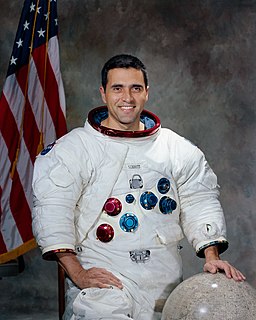A Quote by Jefferson Davis
Our government is an agency of delegated and strictly limited powers. Its founders did not look to its preservation by force; but the chain they wove to bind these States together was one of love and mutual good offices.
Related Quotes
I consider the government of the United States as interdicted by the Constitution from intermeddling with religious institutions, their doctrines, discipline, or exercises. This results not only from the provision that no law shall be made respecting the establishment or free exercise of religion, but from that also which reserves to the States the powers not delegated to the United States. Certainly, no power to prescribe any religious exercise or to assume authority in any religious discipline has been delegated to the General Government. It must then rest with the States.
Nothing in the Constitution of the United States gives the Congress or the Executive Branch the power to attempt the task of regulating climate, as impossible as that would be under any realistic scenarios. No national security emergency exists relative to climate that would warrant increased governmental control of energy production. Today's Americans have an obligation to future Americans to elect leaders who do not believe in an omnipotent government but believe, as did the Founders, in limited government, and in the preservation of liberty and the natural rights of the people.
I believe in the separation of powers. If a judge crosses the line between interpreting and making the law, he has crossed the line supporting his legitimate authority from the legislative branch's authority. Now, to me that's a very serious matter if we believe, as America's founders, did that the separation of powers - not just in theory or in textbook but in practice in the actual functioning of government - is the linchpin of limited government and liberty.
Ronald Reagan [ cite the founders] on behalf of emphasizing the faith of our founders, of limited government, of the uniqueness and exceptionalism of America, of a nation with a people facing another historic challenge beyond the American Revolution, and in contrasting the system of the United States with the system of the USSR.
When the Founders thought of democracy, they saw democracy in the political sphere - a sphere strictly limited by the Constitution's well-defined and enumerated powers given the federal government. Substituting democratic decision making for what should be private decision making is nothing less than tyranny dressed up.
To hold that Congress has general police power would be to hold that it may accomplish objects not intrusted to the general government, and to defeat the operation of the 10th Amendment, declaring that 'the powers not delegated to the United States by the Constitution, nor prohibited by it to the states, are reserved to the states respectively, or to the people.
If we resort for a criterion to the different principles on which different forms of government are established, we may define a republic to be, or at least may bestow that name on, a government which derives all its powers directly or indirectly from the great body of the people, and is administered by persons holding their offices during pleasure for a limited period, or during good behavior.
I consider the foundation of the Constitution as laid on this ground that 'all powers not delegated to the United States, by the Constitution, nor prohibited by it to the states, are reserved to the states or to the people.' To take a single step beyond the boundaries thus specially drawn around the powers of Congress, is to take possession of a boundless field of power not longer susceptible of any definition.






































